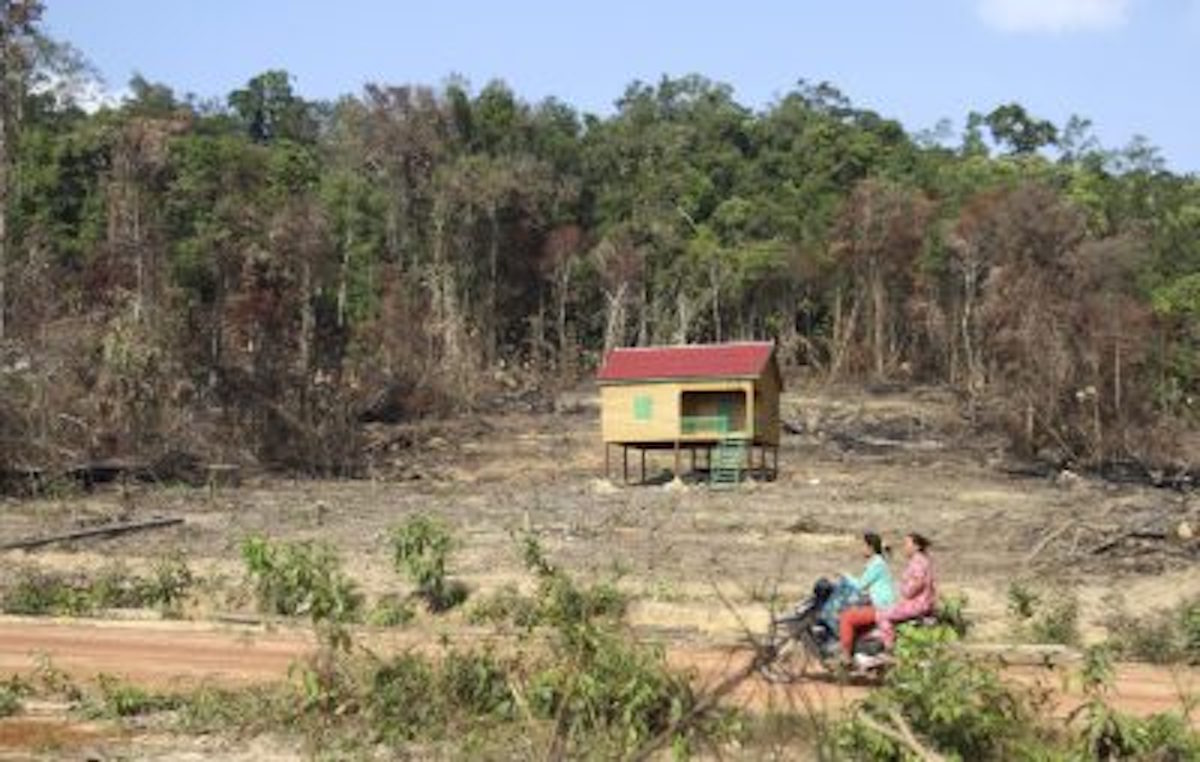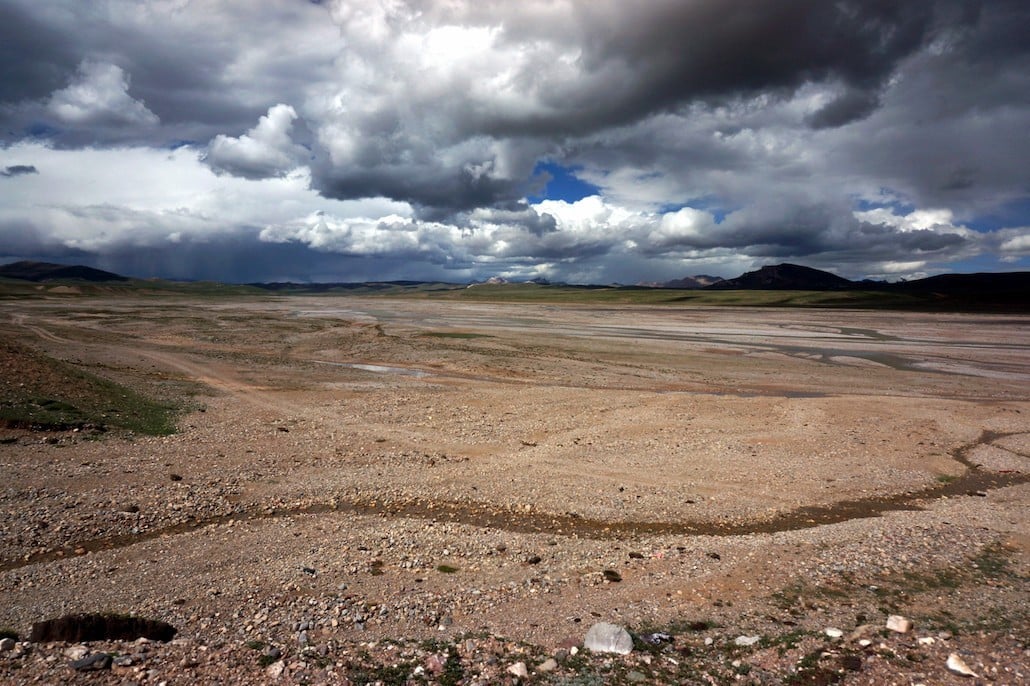In this commentary submitted to The Mekong Eye, the Viet Ecology Foundation responds to MRC CEO’s recent interview on the future of the Pak Beng dam project. The opinions are those of the author and do not necessarily reflect those of The Mekong Eye or any of its partners.
In the last few years, the Tonle Sap and the Mekong Delta have been devastated under droughts and salt intrusions, and the living conditions of millions Cambodian and Vietnamese fishermen and farmers have never been so dire. Sediment transport has been reduced by 50% as a result of the Chinese Dams in Yunnan. Scientists predict that the next 11 lower Mekong dams would deny the delta the next 25%. The dam madness has slowly delivered the fatal blow to peoples’ livelihoods. Thailand and China will reap the most benefits, much more than Laos, while she is burdened with enormous national debts and depends on China for investment, technologies, and “Made in China” power equipment. The Cambodian and Vietnamese will suffer environmental cost and impacts of these dams, yet Dr. Pham Tuan Phan, a Vietnamese national boldly, said: “Hydropower development will not kill the Mekong River”
This is the Viet Ecology Foundation’s (VEF) rebuttal to the above, as we deem necessary to inform the public of his mistake, blatant misinterpretation of the strategic assessment report, unproven dam design features, and his bias and obviously unprecedented “pro-dam” attitude; no previous MRC secretariat CEO ever injects that way into a forum of a controversial MRC project.
Making outrageous remark without supporting evidence or study
In the Mekong Eye March 3, 2018, article, a reporter asked: “There have been more and more hydropower projects on the Mekong river, so what are the challenge to the downstream countries, as well as to the use of sustainable water resources that can be beneficial to all parties?
Dr. Phan said: “The hydropower on the Great Mekong will not kill the river. Firstly, I think we should understand this point clearly.
It is true that the dams on the Mekong River will cause certain impacts to the ecosystems throughout the basin. A study in the Mekong Delta, conducted by Vietnam National Mekong Commission (Committee) has shown that.”
The point Dr. Phan made that “The hydropower on the Great Mekong will not kill the river” is groundless, strictly made up by himself. The study he referred to is the “Study on the Impacts of Mainstream Hydropower on the Mekong River,” which is also known as the Mekong Delta Study (MDS) conducted by the Danish Institute of Hydrology for the Vietnam National Mekong Committee. That report includes no such statement.
The MDS cited was criticized by Vietnamese scientists as well as the Viet Ecology Foundation for its limited scope and investigation; therefore, impacts reported would be underestimated. Even then, that report concludes with strong and unmistakable warnings as follows:
“In conclusion, the proposed mainstream cascade would cause very high adverse impacts to the Mekong River floodplains and Delta due to the combined interaction of dam barrier effects, highly reduced sediment and nutrient loading, and increase in salinity incursion. Yield of the critically important capture fishery could be reduced by 50%, and up to 10% of fish species in the region could be lost. The large amounts of sediment trapped behind the dams would greatly decrease the delta’s capacity to replenish itself, making it more vulnerable to sea level rise and saline intrusion, and may worsen coastal erosion. Loss of nutrients trapped along with the sediments will decimate the unmatched productivity of the flood-affected parts of the delta system.
In the Mekong River Delta, the food, health, and economic security of the local populations are inseparably intertwined with the integrity of the natural environment. Unmitigated mainstream hydropower development in the LMB would cause long-lasting damage to the floodplains and aquatic environment, resulting in significant reduction in the socio-economic status of millions of residents and creating social and economic burdens on local and regional economies. With regard to the Mekong River Delta as a unique system of national and international heritage, the planned hydropower cascade would substantially and permanently alter the productivity of the natural system leading to degradation of all the Delta’s related values.”
Speaking like a spokesman for the “pro-dam” camp and Laos government
Clearly, Dr. Phan has misled the public about the report with a false promise and promoted a baseless understanding. He undermines the credibility of the Office of the MRC Secretariat and disqualifies himself for his position. On Xayaburi Dr. Phan also said: “The dam developer used the additional investment of $400 million to improve the sediment discharge more effectively, to make the navigation better” and “Xayaburi has become a model for all Mekong mainstream dams. Currently, the dam is helping fish species to move upstream, as well as downstream from upstream better.”
These are clearly the languages of a dam proponent, with no prior proven project experience, that demonstrate the Mekong fish and sediments would still move past the dam. The Laos government simply gambles with their money and puts the Lower Mekong Basin at risk of irreversible destruction. Dr. Phan is irresponsible to act as the spokesman for Laos’ engineers.
Failing to recognize the stagnation in the PNPCA and giving in to Laos
In another remark, Dr. Phan stated that: “The PNPCA of Don Sahong project did not achieve the consensus from downstream countries as Cambodia, Thailand and Vietnam. But Laos still (build) the dam, and it is said that currently the overall progress of Don Sahong reaches approximately 30%.” So, does the PNPCA process still work with the hydropower plans on Mekong mainstream or not? I cannot answer specifically on Don Sahong dam …”
Dr. Phan obviously fails to acknowledge that Laos’ proceeding with Xayaburi and Don Sahong without consensus from other member nations required by the letter A in the PN PCA as mandated. It is obvious that, under his leadership, he is willing to let Laos ignore the opposition and keep going on with their dam business as usual.
This opinion piece was submitted to The Mekong Eye and reflects the views of the author only.
Photo: Traditional community fishing near Pak Being on Mekong mainstream




